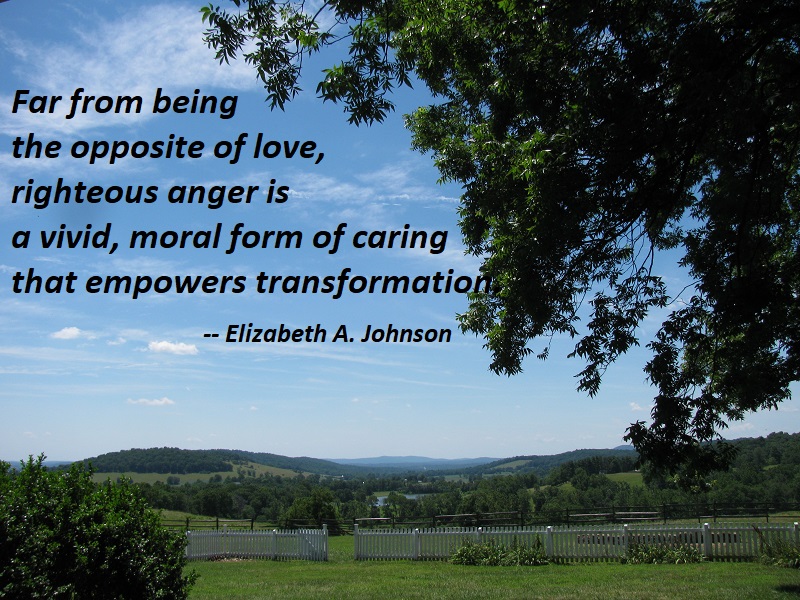
The real issue, though, is how to understand divine anger in the context of overwhelming graciousness and mercy. The danger is that within a patriarchal, punitive setting, speaking of a wrathful God has been used to justify holy wars and torture, hostility to outsiders, and debilitating guilt in sensitive consciences. But righteous anger is a different breed of cat. It is profoundly ethical. It waxes hot in moral outrage because something good is being violated. Arising from love, it awakens energy to act to change the situation. Editing a powerful book of photographs of African American women, Barbara Summers was struck by the creative power of anger of even the most accomplished of these women: “A truly beautifying discovery for me was to find so much love in anger. It was a fist-up, death-defying love that challenged the unfair conditions of life and muscled in on injustice as it nursed both sides of a nation.” This is not anger with the spirit of murder in it, but fury that is creative of life. Much feminist in-depth analysis, such as Beverly Harrison’s influential essay “The Power of Anger in the Work of Love,” makes clear that far from being the opposite of love, righteous anger is a vivid, moral form of caring that empowers transformation.
In the context of God’s graciousness and mercy, divine anger functions for justice. It bespeaks a mode of caring response in the face of what harms beloved human beings or the created world itself. “The exploitation of the poor is to us a misdemeanor; to God it is a disaster,” writes Abraham Heschel. Divine wrath is a worthy response. True, it lasts but a moment; true, it is instrumental, aimed at change and conversion. But it stands as an antidote to sentimentality.
— Elizabeth A. Johnson, Creation and the Cross, p. 39-40
Photo: Sky Meadows State Park, Virginia, July 3, 2017